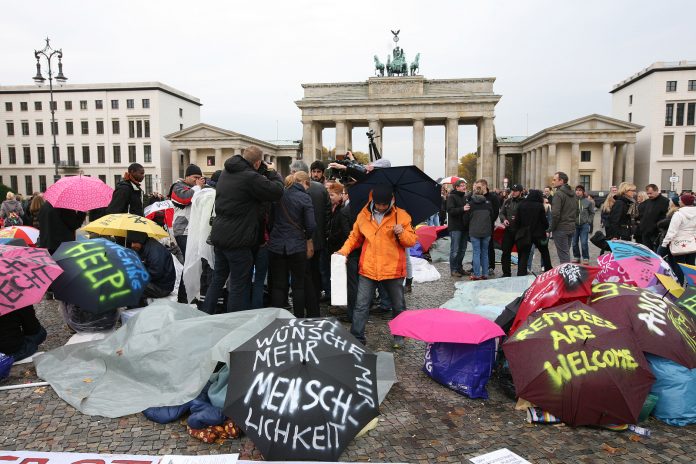The issue of migration in EU and especially in Germany is taking on new phases, forcing different measures and reflections on the continuation or, on the contrary, the slowing down of this kind of migrant policy – DW
Around 200 refugees arrive in Berlin every day. According to assumptions, they should only stay at the primary location for a short time, then they should be transferred to other parts of the city. The problem, however, is that vacant flats are hard to find and some refugees have been detained in such places for more than a year. There are currently about 4,000 people living there and further expansion is underway to provide up to 8,000 beds.
In 2023, the situation is as follows: 220,000 migrants have submitted their first asylum applications; 1 million refugees from Ukraine are increasingly registering with the authorities to receive housing from the state.
Many municipalities are operating in “emergency mode.” Burgomasters and district councils say they are increasingly faced with the problem of accommodating refugees, who are distributed according to a fixed formula.
In October, 600 of Germany’s 11,000 municipalities took part in a survey conducted by Mediendienst Integration together with migration researchers from the University of Hildesheim. Nearly 60% of them characterised the situation as “challenging, but [still] feasible.” However, 40% stressed they were “overload” or even in “emergency mode” (in connection with the situation in Italy). Mayors and district councillors tended to view the situation negatively: 53 per cent said they consider their municipality “overburdened”.
However, housing is not the only issue facing municipalities. There is also a shortage of administrative staff, places in kindergartens and schools, language courses and counselling services for traumatised refugees.
Miriam Marnich of the German Association of Cities and Municipalities explains:
Integration is effectively no longer possible in many municipalities at the moment because resources are exhausted. In terms of personnel, but also in terms of reception capacities.
The interviewees suggest the following solutions to this situation: firstly, to limit immigration so that fewer people go to their municipalities, i.e. to control this process from within; secondly, to allocate more funds and guarantee reliable long-term funding; the third and final point is to provide support for housing, from simplifying legal procedures to increasing social housing programmes.
The positive side of the question is that only a fifth of respondents said they would like to see an increase in the number of deportations. Boris Kühn, a migration researcher at the University of Hildesheim:
How prominent that topic is currently in federal and state politics, that isn’t much.
There are currently around 250,000 people in Germany who have been refused asylum. But 200,000 cannot be repatriated: either there is no country willing to accept them, or their country of origin is in a war zone, or they themselves have serious health problems that cannot be treated in their country of origin.
Authorities are also discussing limiting social benefits for refugees, which are more generous in Germany than in many other European Union countries. However, migration researchers have criticised these demands:
The principle of benefits in kind was already tried in the 1990s and then again in 2015 and it turned out not to be practical, said Niklas Hader from the German Centre for Integration and Migration Research in Berlin.
The law has long allowed refugees to receive mostly in-kind benefits, such as housing, but the authorities prefer not to do so because it is resource-intensive and much more expensive than simply paying cash.
Those living in initial reception centres receive food in their accommodation and an additional maximum of 150 euros per month in pocket money for personal needs such as phone cards, toiletries or travel tickets – this is enshrined in law and the Constitutional Court has ruled that it cannot be arbitrarily reduced.
If we switch exclusively to benefits in kind, this does not mean that fewer people will set off for Germany, said Marnich of the German Association of Towns and Municipalities.
One of the changes being discussed is the switch to debit cards instead of cash.
Such debit cards are used in other countries, such as France. Instead of cash, refugees will receive a card to which the social authorities will regularly transfer benefits, which can be used to pay in supermarkets. However, there is a peculiarity: it will be impossible to withdraw cash from the card.
